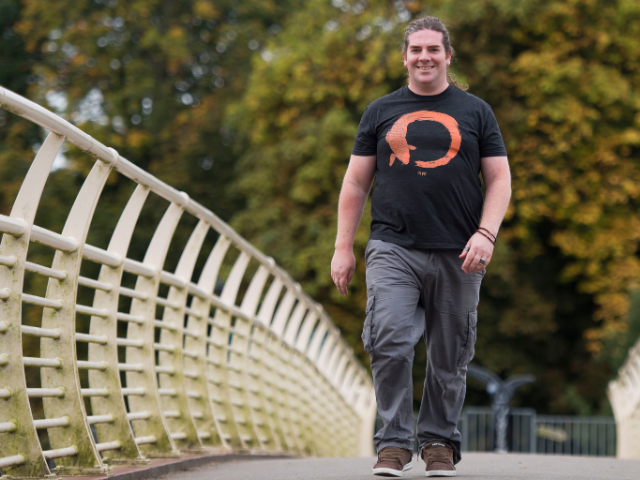
“Knocking down walls and reducing stigma”: Research Champions
“Knocking down walls and reducing stigma” is how Paul Gauci, communications manager at the National Centre for Mental Health (NCMH), sums up the work of an inspirational group of ‘research champions’.
Recruited from a pool of more than 5,000 people who have taken part in research since the centre was founded, the 20 champions are helping to spread the word about NCMH by telling their stories.
Paul explains: “Taking part in research is totally confidential, however some people were keen to share their stories and encourage others to get involved in research – and for that we are hugely grateful. There’s a real feeling that these champions want to help and support people who have had similar experiences.”
The Centre – funded by Health and Care Research Wales – has been using the champions to promote their work and research on their website, through social media pages and in newsletters and leaflets.
Paul adds: “These 20 individuals are demonstrating that a mental health problem can happen to anyone, at any time. But they’re also showing that they’re more than their diagnosis, and by demonstrating this they’re playing a huge role helping us tackle stigma.”
Research Champion: Lann Niziblian
Lann Niziblian is 45. He’s a husband, a father, a calligrapher. He also has bipolar disorder. Here Lann tells us about his experience and why he became a research champion.
"Seven years ago was when everything changed. I lost my job and I crumbled. I couldn’t cope.
"One day I parked in a lay-by up on the mountain, switched off my phone and just sat there and cried for hours. And then I did it again the next day. I knew something was wrong and decided it was time to speak to my GP.
"My GP diagnosed depression and prescribed anti-depressants. I remained on medication for two relatively stable years, but I now realise I was kindling a manic phase. I began experiencing unusually high moods and made many impractical decisions. It wasn’t until I came across an article on someone with bipolar that I started to put the pieces together. I returned to my GP and was later referred to a psychiatrist.
"The psychiatrist ‘got me’. I can’t praise her enough. With her help, and the support of my family, I was able to stabilise my moods and stay well. I finally hit upon the right mix of medication and it felt like someone had turned the lights back on. I felt like me again. I made the decision from day one to be honest with my family and friends. The response has been mixed. My immediate family – my wife and children – have been amazing. For that I’m very lucky. But some have been less supportive, totally dismissing my bipolar diagnosis – which I can only put down to a lack of understanding.
"Motivated by my own early experiences of feeling lost and isolated, I didn’t think twice about signing up to become a research champion. The only way we’ll ever tackle illnesses like bipolar is by understanding them, so if I can give a little time now to make a difference for people maybe 10 or 20 years down the line, then why wouldn’t I?
"Soon after I signed up, my wife, Lydia, decided she too wanted to get involved and became a ‘plus one’. She wanted to do something practical and, having seen me sign up, knew it was such a simple process. She was interviewed by one of the researchers and gave a small blood sample. It took minutes. Being a champion has changed me a little. I now feel empowered to talk about mental health. While I don’t actively open up about bipolar, I’m very happy to answer questions and dispel myths.
"As for me and the future? I hope to live a stable life. It’s not always easy and I still have difficult times. I don’t want to have bipolar, but I’m accepting that it will always be a part of me and am learning to live with it."
First published: @ResearchWales Issue 1, October 2016